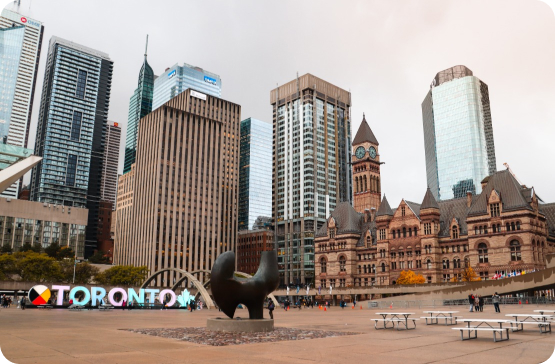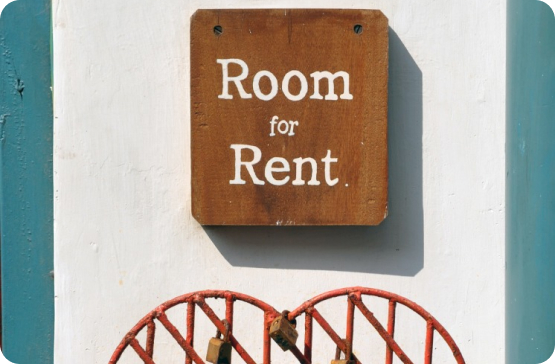Navigating Toronto’s Real Estate Market: Tips for Moving Home

Though inventory has recently improved, interest rates continue to rise, and housing prices are not cooling yet. If you’re planning a move to Toronto or within Toronto, we have some tips to help you navigate Toronto’s real estate market, including the pros and cons of renting vs. buying.
Whatever you decide, careful planning is essential to ensure your move goes smoothly and you don’t overshoot your budget.
Understanding Toronto’s Real Estate Market

As for rentals, condo and apartment rents are outpacing inflation, driven by strong demand and competition. Population growth is a factor, with people moving to Toronto for work, recent immigrants, and investment in multi-unit dwellings driving the trends. Though the short-term rental market seems to have levelled off, real estate investors continue to snap up buildings and rental units to turn them into lucrative Airbnb properties, reducing affordable options for long-term renters.
Though the situation sounds dire, there are still neighbourhoods in Toronto and the GTA where purchasing and renting is affordable. It’s critical to take a hard look at your finances to understand what’s reasonable and practical before committing.
For example, if you found an affordable apartment or condo in Downsview but your job is in the downtown core, it would likely take you an hour each way to get to work. Is it worthwhile? On the other hand, if you work from home, Downsview is a nice, walkable area with many amenities, so it could be just what you’re looking for.
Deciding Where to Live
Choosing where to live in Toronto can be confusing. It’s a large, sprawling city with many outlying suburbs and distinct neighbourhoods with strong cultural ties.
Ultimately, your decision should first consider what you can afford, then the practicality of the location.

- Do you need to be close to schools? If you have children, safety is also a consideration. Toronto is generally safe, but there are high crime areas, like any other big city. When researching, check each area’s crime rate using the Toronto Police Services interactive tool.
- Do you have a car? If you do, parking is a concern. Insurance is also higher in parts of Toronto, so check with your insurance company before you move. If you don’t have a car, you’ll want to ensure you have good access to transit. Fortunately, the TTC runs everywhere, and GO Transit connects the city to the suburbs. Taxi companies, Uber, and Lyft rides are available for short trips.
- Amenities like shopping malls, grocery stores, corner stores, restaurants, etc. are everywhere in Toronto. If you prefer a neighbourhood where you can walk to services, you’re probably better off closer to the core. That being said, many suburban communities have little village-like shopping districts that serve the local population.
- Toronto’s cultural tapestry is rich and varied. If you come from an ethnic background and would feel more comfortable living in an area with people who speak your language, here are a few examples of neighbourhoods with strong cultural ties:
- Greektown: Danforth Ave., east of Broadview
- Little Italy: College St. west of Bathurst
- Little Portugal: Dundas St. west of Dufferin
- Little Poland: Roncesvalles Village
- Chinatown: College and Spadina
- Little Jamaica: Eglington around Keele St.
- Little India: Gerrard and Greenwood
Buying vs. Renting in Toronto
Any major purchase decision should be carefully considered. While buying a home is usually a sound investment, the current market is volatile, and you need to be sure you can afford your mortgage, taxes, and all the expenses of owning a home. It’s vital to ensure you’re not overpaying, as you want to ensure the property retains its value even if the market cools.

Consider your income, your short and long-term plans, and how long you intend to stay in your home. If you’re moving to Toronto for a job, perhaps it would be better to rent for a while until you are sure the situation will work out. You may also want to ask your employer for relocation assistance, as it will help you reduce the risk.
If you’re intent on buying, a condo is probably the best value. You’ll be able to find a unit at a much lower price than a home, and your monthly condo fees cover all maintenance expenses.
Condos offer many on-site amenities, reducing the need to leave the property or drive far to get the things you need.
Older individuals may choose to rent vs. buy, as it will reduce expenses and maintenance needed to keep up the property.
On the other hand, renters have no equity and would have to accept certain risks, such as rents going up over time, the sale of the property, or having restrictions put on them (such as no pets) that they might not want to accept.
Should You Work with a Real Estate Agent?
Real estate agents are professionals trained to navigate the details and legalities of property sales and leases. They should be able to answer all your questions and keep you informed during the process. Some real estate offices also work with rental properties, so it’s worth calling around to find an agent who can help.
 Working with a real estate agent can accelerate your timeline and help you narrow your options so you don’t waste time.
Working with a real estate agent can accelerate your timeline and help you narrow your options so you don’t waste time. Tips for a Smooth Move
Moving can be very stressful! The process often begins months before the actual move. Planning and research are critical to ensure you land in the right place. Once you know where you want to be, choose a reputable mover, get your moving checklist together, and start packing!
Moving is hard, just give it to us
The impact of moving stress can vary depending on the person. Some common ways it can affect you include trouble sleeping, increased anxiety, and feeling disconnected or out of sorts.
It’s vital to address these feelings and find healthy ways to cope. If left unchecked, moving stress can have long-term implications, leading to depression, relationship problems, and physical health issues.



